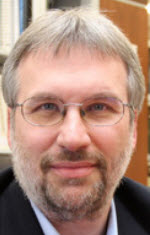Michigan’s pre-school program needs more money, integration

In the past few years, Michigan has dramatically expanded preschool programs. What does research show about this expansion’s likely impacts? What could increase this expansion’s benefits?
My just-published book, “From Preschool to Prosperity,” summarizes research on preschool’s economic effects. This research shows that “high-quality,” full-day preschool programs in cities such as Boston, Chicago, and Tulsa increase the future adult earnings of former participants by 8 to 15 percent. Half-day preschool increases earnings by a little more than half as much. Michigan’s state-funded preschool program, the Great Start Readiness Program (GSRP), is backed by research showing that the program in the past has increased test scores enough to predict similar adult earnings impacts.
“High-quality” in preschool depends upon how teachers interact with students. This depends upon having reasonable class sizes, and paying enough to attract and retain quality teachers. Quality also depends upon helping teachers improve through teacher mentors working one-on-one with teachers.
Preschool’s economic impacts are larger if preschool includes middle-class as well as low-income children. Research shows that middle-class and low-income students get similar test score gains from preschool. In addition, low-income children benefit from positive peer effects in income-integrated classes.
In the last 2 years, GSRP has expanded from 32,000 to 63,000 half-day “slots”, and from 25,000 to over 35,000 children. (Some children are in full-day preschool, and take up two half-day slots.) Based on past research, GSRP would be expected to increase the present value of future lifetime earnings of each annual cohort of children by over $1 billion. This is a hefty multiple of the program’s annual price tag of $239 million.
But the program’s real funding per slot has lagged behind what is needed. GSRP’s nominal funding per slot was frozen for many years, and has only been modestly increased in the past two years. Funding per slot today for GSRP is only $3,625, with an extra $150 for transportation costs. From 1990-2000, GSRP funding per slot in today’s dollars averaged $4,443. Based on research by the Institute for Women’s Policy Research, a quality half-day slot costs at least $4,675.
In addition, as GSRP has expanded, there has been insufficient support for expanded teacher training, and especially teacher mentoring.
Finally, as part of the expansion, the legislature narrowed the income targeting of the program to focus more on the lowest-income children. This targeting encourages local GSRP programs to be increasingly income segregated, which is not in the best interests of low-income children.
What can be done? First, the state should increase per student funding for GSRP, to enable local preschools to better attract and retain quality teachers. Second, the state should provide additional funds for teacher mentoring and training in preschool. Third, the state should consider more flexible funding schemes that would allow more income-integrated classrooms. Fourth, the state should match states such as Oklahoma that have more nearly universal access to high-quality preschool for 4-year olds. Even with Michigan’s recent expansions, fewer than half of Michigan’s 4-year olds are in state-funded preschool, compared with three-fourths of all 4-year-olds in Oklahoma.
A high economic impact for preschool requires both access and quality. Both access and quality require sizable upfront investments. But the research evidence overwhelmingly shows that such investments will pay off. Our state’s economic future will be brighter with wise investments in quality preschool.
See what new members are saying about why they donated to Bridge Michigan:
- “In order for this information to be accurate and unbiased it must be underwritten by its readers, not by special interests.” - Larry S.
- “Not many other media sources report on the topics Bridge does.” - Susan B.
- “Your journalism is outstanding and rare these days.” - Mark S.
If you want to ensure the future of nonpartisan, nonprofit Michigan journalism, please become a member today. You, too, will be asked why you donated and maybe we'll feature your quote next time!
 Timothy J. Bartik is a senior economist for the W.E. Upjohn Institute for Employment Research, an independent, nonpartisan research organization in Kalamazoo. Bartik’s 2014 book, “From Preschool to Prosperity: The Economic Payoff to Early Childhood Education,” is available free as a pdf file at the Institute website, and also is available from Amazon.
Timothy J. Bartik is a senior economist for the W.E. Upjohn Institute for Employment Research, an independent, nonpartisan research organization in Kalamazoo. Bartik’s 2014 book, “From Preschool to Prosperity: The Economic Payoff to Early Childhood Education,” is available free as a pdf file at the Institute website, and also is available from Amazon.